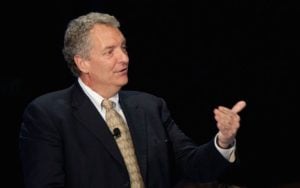No one doubts that technology has changed HR. We have suggested that digital HR has moved through three phases: efficiency (phase 1), innovation (phase 2), and information (phase 3). But, the next phase of digital HR impact will be to enhance connection.
“Being connected overcomes loneliness (social isolation) and underlies employee experience. The need for connection is high as recent research has found that social isolation increases mortality rates more than smoking, obesity, or substance abuse”
Connection defines employee experience by drawing on attachment theory. Attachment theory essentially states that when someone has strong emotional attachment, personal well-being increases, which in turn increases personal productivity and overall organizational performance. The HR digital agenda needs to evolve to focus on emotional attachment or connection in two ways.
First, HR technology helps employees attach to each other in order to feel a sense of belonging through personal relationships. As such, technology is about connections not contacts. These personal connections may be problem-solving networks where people work on common business problems with others from around the world, social networks where people share their daily lives, or meaning networks where people connect with others who share their values.
For the millennial generation, these technology-enabled networks are often a major part of daily life. But for all generations, technology networks can shift from simply sharing information to also creating emotional connections. Gamification, for example, is not just about using games to share information but to build personal relationships among the game players.
Second, emotional attachment or connection is not just from belonging and relationships but also meaning and identity. A good friend recently sold her business and fell into a melancholy back hole. While she still had friends, she felt the loss of her connection from the meaning and identity her organization gave her. Another friend learned that being alone is not the same as being lonely. Even being alone, he could connect with his immediate physical setting (in his case, finding joy from seeing the ocean), with his work (working with a purpose), and with his personal goals (feeling accomplishment). So in addition to connecting through belonging, HR could use technology to encourage employee connection through:
- Entertainment and activities: Employees have activity connections when they use digital information to be more entertained, informed, and enthusiastic about their hobbies and pastimes. E-sports is one of the fastest growing entertainment activities today.
- Nature: Employees feel nature connection when they use technology for virtual visits to favorite locations and to more readily schedule outings to meaningful places.
- Ideas: Employees have idea connection when they become passionate about their insights and then use technology to access and generalize their ideas.
- Organization: Employees gain identity connection by participating in a purpose-driven organization (work, community, charitable, political, religious, or other organization). Technology enables these organizations to articulate and share their purpose through social media and other platforms.
As HR professionals use technology to create employee connections and experiences with both people and sources of meaning, they advance the next digital HR agenda.



